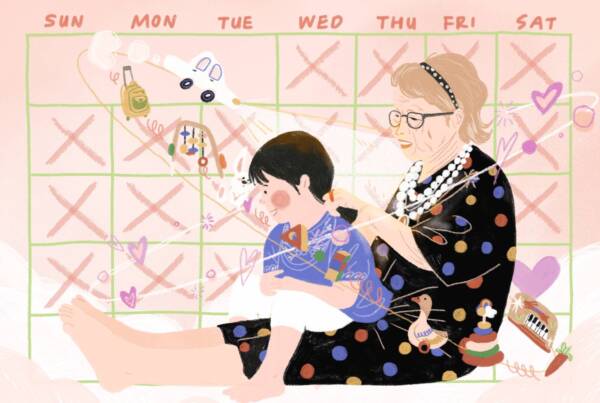Interview of Jennifer A. Wiessner by Sophie Pellegrini // Photographs by Vi – (nie)ulotne
Tigress was fortunate enough to get an interview with Jennifer Wiessner, an AASECT Certified Sex Therapist and Couples Therapist working in Cumberland, Maine, despite her very busy schedule. The interview has been split into two sections: enjoy part one below, and learn some things you probably didn’t know about a frequently-misconceptualized field of sex-therapy!
What can you tell us about the history of sex therapy?
The history of sex therapy has its roots in many origins. In ancient China, India, Greece and Rome, sex therapy took the form of spells, aphrodisiacs, tantric yoga, the Kama Sutra and other manifestations. It would take me many pages to credit all the greats who laid the foundation for the study of sex therapy so I will credit just a few.
Sexual behavior has always been of great interest to those who study behavior. In the early part of the 20th century Henry Havelock Ellis and Alfred Kinsey began scientific study of human sexuality with Kinsey’s work being both groundbreaking and controversial. He was followed by Masters and Johnson in the 1960’s, who revolutionized the study of sexual behavior and advanced the repressive focus on sexual behavior that was common in the 1950’s. Their research included the use of cognitive behavioral therapy as a paradigm. Dr. Helen Singer Kaplan modified Masters and Johnson’s work to include medication and integrated psychodynamic theory into her outpatient practice.
Fast forward to the medicalization of sex therapy in the 80’s and 90’s with the focus on male sexual dysfunction giving way to pharmacological treatments such as Viagra, penile injections and the use of anti-depressants to treat sexual dysfunction. Later, female sexual dysfunction was gaining in interest. This ushered in hormonal treatments that were used for male and female dysfunction, as well the use of dilators to treat issues like sexual pain and Vaginismus.
Today sex therapy takes many forms, depending on the education, skills, and approach of the practitioner. Sex therapy is similar to “talk therapy” with a licensed therapist, in that issues are brought to the therapist that are distressing the client and the client and therapist work together to reduce distress, learn coping mechanisms, and improve outlook on the problem. One aspect of sex therapy that is often different from regular talk therapy is the content of subject matter. A sex therapist is skilled in hearing intimate details from clients who often do not have safe places to share such details.
What are the requirements to be a certified sex therapist?
I am certified through the American Association of Sex Educators, Counselors and Therapists (AASECT www.aasect.org) as a Sex Therapist. I was a Licensed Clinical Social Worker working with adolescents and adults for 10 years before pursuing AASECT certification. To achieve certification as a sex therapist through AASECT, one must complete a minimum of ninety (90) clock hours of academic coursework in sexuality education, covering general knowledge in the Core Knowledge areas as put forth by AASECT as well as complete a minimum of sixty (60) clock hours of training in how to do therapy with patients/clients whose diagnoses include the Psychosexual Disorders described in the current edition of the Diagnostic and Statistics Manual of the American Psychiatric Association (DSM). Additionally, therapists must complete a Sexual Attitude Reassessment (SAR) which provides a participant with a group process to address feelings, attitudes, values, and beliefs regarding human sexuality and sexual behavior. For me, this experience was one I will never forget and would be of benefit to all therapists to help them consider how their own beliefs and values can bleed into the therapeutic process. Finally, applicants must complete a minimum of three hundred (300) hours of AASECT supervised clinical treatment of patients/clients who present with sexual concerns and a minimum of fifty (50) hours of supervision with an AASECT Certified Supervisor.
What services do sex therapists provide?
As a sex therapist, I provide a myriad of services that complement my skill set. I provide couples therapy with sex therapy assisting couples of any configuration to improve their sex lives, communicate better, heal from past trauma, heal from infidelity, and understand discrepancy in desire. I work with individuals and couples to reinvent their sex lives after cancer or illness; discover their own passion; consult with physicians on the client’s behalf to connect the emotional and physical aspects. I enjoy assisting transgender individuals to become their true selves as well as working with kinky people who want to accept themselves in what often feels like a sex negative culture. To do this, I use talk therapy, experiential exercises to tap into the neurobiological aspects of learning, mindfulness, cognitive behavioral work and much more!
What are some of the most common problems/issues you help clients with?
As both a couples therapist and certified sex therapist, I like to think of myself as a Sherpa or guide to the couples, groups, and individuals I serve. People present with some sort of sexual dissatisfaction that may manifest relationally, physically, emotionally or spiritually. As a Sherpa or guide, it is my goal to create a safe permission-giving space for people to share their sexual selves and to gain understanding of their presenting issue and how it may be affecting them. The client is always in control and is making their own decisions. I am there to help the client see in themselves the answers that already exist.
Some common presenting issues that I address are general marital dissatisfaction, sexual pain, issues of gender transition, infidelity, low desire/arousal, male and female sexual dysfunction, compulsive sexual behavior, polyamory, post-pregnancy and post-cancer sex, raising sexually healthy children, fetishism, and LGBTQ issues. In Maine, there are currently only three certified sex therapists (I was the first certified female in the state) so I tend to see many types of presenting issues that I didn’t initially expect to see but due to the high demand; I do and I am grateful for what my clients teach me.
Stay tuned for Part 2 of this interview!!!









Loved this, Jennifer! So informative 🙂
Thank you for this thoughtful and honest look into the field of sex therapy—Jennifer’s insights are not only deeply compassionate, but also clarify so many misconceptions. As a fellow sex therapist, I especially appreciate the emphasis on creating a safe, permission-giving space; it’s foundational to helping clients feel seen without shame. One professional tip: normalizing sexual concerns early in therapy often opens the door to deeper emotional healing. And don’t underestimate how powerful it can be to simply give someone the language to describe their experience. This interview is such a gift to anyone curious about the real heart of this work.